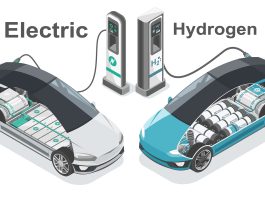Alex Johns, Partnership Lead at Altelium, explores why battery health tests are critical to determine the reliability of a second-hand electric vehicle.
To help consumers better understand and ameliorate car insurance premium price increases, the ABI unveiled a series of steps the industry is taking to combat the rising costs of motor cover.
This includes a thoughtful research project in collaboration with its Consumer Advisory Group, into the feasibility and impact of various social policies focused on helping low-income households manage their insurance costs.
Focusing on low-income households is especially important because personal car ownership has been proven to enhance life opportunities for this demographic. Put the other way around, not being able to afford your own car reduces access to good-quality work and social mobility.
Altelium has explored this subject before in an article entitled ‘Ensuring a fair and equitable transition to the clean transport market’. In this context, the ABI work is particularly to be commended.
The growth of the second-hand EV market
But the insurance market has overlooked a core feature that will be vital to everyone, particularly those in low-income households in the future – the ability to buy and insure a reliable second-hand electric vehicle (EV) with a working battery.
80% of people source their cars from the second-hand market. In 2023, used EV sales grew by 90.9% to 118,973, but this was just 1.6% of all used car sales. Sales of used EVs may exceed 700,000 by 2030, over 9% of all used car sales.

For these used EVs, a battery health certificate will be vital proof that the vehicle is worth buying –who else will trust the vehicle’s true range or that the battery will last?
The importance of battery health tests on used EVs
The insurance industry should include battery health tests in any future plans to manage premiums because they are also good for people and the planet.
A healthy battery is a sign of a particular type of driver. One who has consistently charged it smoothly avoided repeated fast charging, been easy on the brakes and acceleration and is therefore far more likely to be a safe driver.
The precious resources in the battery will last longer, and the driver will have a car that lasts longer and has a higher resale value.
Insurance discounts tied to annual battery health testing would:
- Incentivise owners to drive and operate their vehicles to maximise vehicle health, protecting value and resources
- Offer a way to reduce insurance premiums
- Align with the broader goal of promoting equal access to sustainable transportation
The insurance industry should urgently explore the value of an annual battery health check as part of policy renewal.
It would put the insurance industry firmly on the side of the consumer and make complete sense for people and planet alike.









